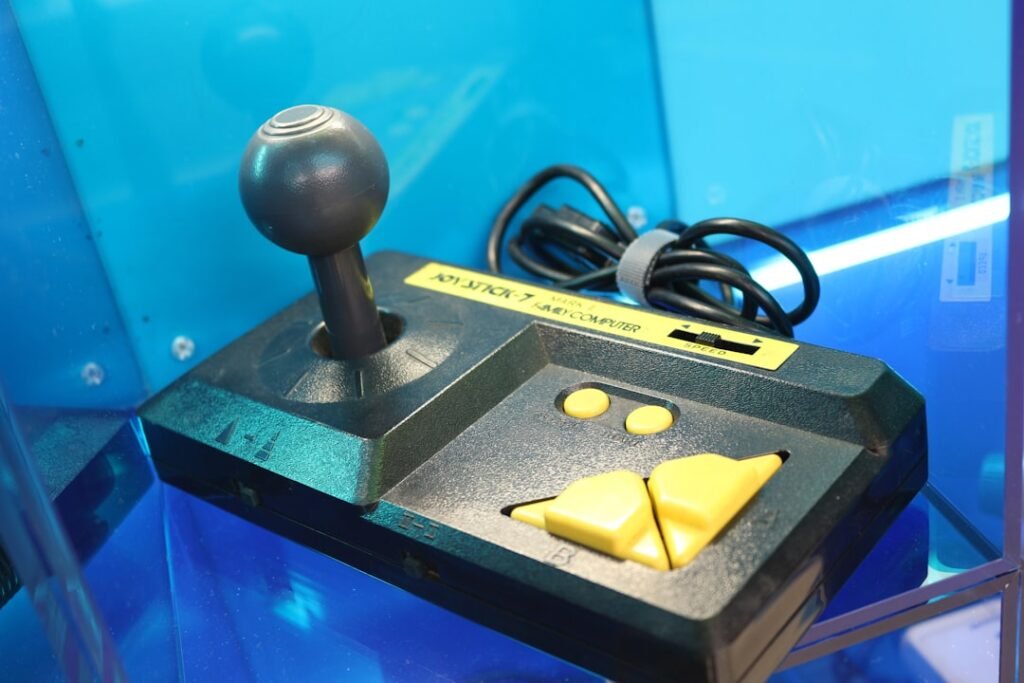Now Reading: The Hobbyist Devs: Making Hit Games
-
01
The Hobbyist Devs: Making Hit Games
The Hobbyist Devs: Making Hit Games

In recent years, I have witnessed a remarkable surge in the number of hobbyist game developers. This phenomenon can be attributed to several factors, including the accessibility of game development tools and the proliferation of online resources. With platforms like Unity, Unreal Engine, and Godot becoming more user-friendly, I find that aspiring developers can dive into the world of game creation without needing extensive programming knowledge.
The democratization of technology has empowered individuals to transform their creative ideas into playable experiences, often from the comfort of their own homes. Moreover, the rise of social media and online communities has played a pivotal role in fostering this trend. I have seen countless forums, Discord servers, and social media groups dedicated to game development spring up, providing a space for hobbyists to share their work, seek feedback, and collaborate on projects.
This sense of community not only encourages budding developers to pursue their passions but also helps them navigate the often daunting landscape of game development. As I engage with these communities, I am continually inspired by the diverse range of projects and ideas that emerge from passionate individuals who simply want to create.
Key Takeaways
- The rise of hobbyist game developers has been fueled by accessible game development tools and platforms.
- Indie games have had a significant impact on the gaming industry, challenging traditional game development and publishing models.
- Hobbyist game developers enjoy creative freedom and flexibility, but also face challenges such as limited resources and visibility.
- Hobbyist devs are redefining game development by creating unique and innovative games that cater to niche audiences.
- Tips for hobbyist devs include focusing on gameplay, leveraging community feedback, and embracing iterative development processes.
The Impact of Indie Games on the Gaming Industry
Challenging Traditional Norms
Indie games often prioritize unique storytelling and innovative gameplay mechanics over high production values, which has resonated with players seeking fresh experiences.
Breaking Barriers and Achieving Success
Titles like “Undertale,” “Hollow Knight,” and “Celeste” have not only garnered critical acclaim but have also achieved commercial success, proving that passion-driven projects can thrive in a competitive market. Furthermore, indie games have opened doors for diverse voices and narratives that were previously underrepresented in mainstream gaming.
A Richer Gaming Landscape
I appreciate how these games often tackle complex themes and explore unconventional art styles, allowing for a richer tapestry of experiences within the gaming landscape. As I play these titles, I am reminded that the heart of gaming lies in its ability to tell stories and connect with players on a personal level. The success of indie games has encouraged larger studios to take risks and invest in more experimental projects, ultimately benefiting the entire industry.
The Advantages and Challenges of Being a Hobbyist Game Developer

Being a hobbyist game developer comes with its own set of advantages and challenges. On one hand, I relish the freedom to create without the constraints often imposed by commercial expectations. This autonomy allows me to explore my creative vision fully, experiment with unconventional ideas, and develop games that reflect my unique perspective.
The thrill of bringing an idea to life and sharing it with others is incredibly rewarding, especially when I receive positive feedback from players who resonate with my work. However, the journey is not without its hurdles. As a hobbyist developer, I often grapple with time constraints and limited resources.
Balancing my passion for game development with other responsibilities can be challenging, and there are moments when self-doubt creeps in. Additionally, navigating the technical aspects of game development can be overwhelming at times, especially when faced with bugs or design challenges. Despite these obstacles, I find that perseverance and a willingness to learn are essential traits for anyone looking to succeed in this field.
How Hobbyist Devs are Redefining Game Development
Hobbyist developers are redefining game development in profound ways. I have noticed that many of us are breaking away from traditional game design paradigms and embracing innovative approaches that prioritize player experience over commercial viability. This shift has led to the emergence of games that challenge conventional gameplay mechanics and storytelling techniques.
As I explore various indie titles, I am often struck by how they subvert expectations and invite players to engage with their narratives in unexpected ways. Moreover, hobbyist developers are increasingly leveraging technology to create immersive experiences that were once thought to be exclusive to larger studios. With advancements in virtual reality (VR) and augmented reality (AR), I see many indie developers experimenting with these technologies to craft unique gameplay experiences that captivate players.
This willingness to embrace new tools and techniques is reshaping the landscape of game development, encouraging both hobbyists and professionals alike to think outside the box.
Tips for Hobbyist Devs to Make Successful Games
As a hobbyist developer myself, I have learned valuable lessons along the way that can help others create successful games. First and foremost, I believe it is crucial to start small. Focusing on a manageable project allows me to hone my skills without becoming overwhelmed.
By creating a simple game or prototype, I can experiment with different mechanics and learn from my mistakes without investing excessive time or resources. Another important tip is to seek feedback early and often. Sharing my work with others has proven invaluable in refining my ideas and identifying areas for improvement.
Engaging with fellow developers or players can provide fresh perspectives that enhance my game’s design. Additionally, I find that participating in game jams is an excellent way to challenge myself creatively while connecting with other developers who share my passion.
The Role of Community and Collaboration in Hobbyist Game Development

Support and Encouragement
The encouragement and support I receive from fellow developers is invaluable. Online forums and social media groups provide a space where I can share my progress, ask for advice, and celebrate milestones with others who understand the unique struggles of game development. This sense of camaraderie is a powerful motivator, especially during challenging times.
Fostering Creativity and Collaboration
The community-driven approach to game development fosters an environment where creativity flourishes. Collaboration is another powerful aspect of this approach, as it allows developers to combine their skills and expertise, resulting in projects that are richer and more diverse than what any individual could achieve alone.
Learning and Growth
I have had the opportunity to participate in collaborative projects where artists, musicians, and programmers come together to create something truly special. These partnerships not only enhance the quality of our games but also allow us to learn from one another and grow as developers.
The Importance of Creativity and Innovation in Hobbyist Game Development
Creativity and innovation are at the heart of hobbyist game development. As someone who thrives on exploring new ideas, I find that pushing the boundaries of conventional design is essential for creating memorable experiences. Unlike larger studios that may prioritize market trends or established formulas, hobbyist developers often have the freedom to take risks and experiment with unconventional concepts.
This willingness to innovate leads to fresh gameplay mechanics and unique narratives that captivate players. Moreover, creativity allows me to express my individuality through my games. Each project becomes a reflection of my thoughts, emotions, and experiences, making it a deeply personal endeavor.
By infusing my work with originality, I can connect with players on a more profound level, inviting them into my world while encouraging them to think critically about the themes presented in my games.
How Hobbyist Devs Can Monetize Their Games
Monetizing games as a hobbyist developer can be challenging but not impossible. One approach I have considered is releasing my games on platforms like Steam or itch.io, where indie titles often find an audience eager for unique experiences. By setting a reasonable price point or offering my game for free with optional donations or pay-what-you-want models, I can attract players while still generating some income.
Additionally, exploring alternative revenue streams such as crowdfunding through platforms like Kickstarter or Patreon has become increasingly popular among hobbyist developers. These avenues allow me to gauge interest in my project before investing significant time and resources while also building a community around my work. By offering exclusive content or early access to backers, I can create a sense of investment among supporters who want to see my vision come to life.
The Future of Hobbyist Game Development
The future of hobbyist game development looks promising as technology continues to evolve and democratize access to game creation tools. With advancements in artificial intelligence (AI) and machine learning, I anticipate that we will see even more innovative gameplay experiences emerge from independent developers. These technologies could streamline certain aspects of development while allowing us to focus on creativity and storytelling.
Moreover, as gaming becomes increasingly mainstream, I believe there will be greater recognition for the contributions of hobbyist developers within the industry. The success stories of indie games have already begun to shift perceptions about what constitutes a “successful” game, paving the way for more diverse voices and ideas to flourish. As I look ahead, I am excited about the possibilities that lie ahead for hobbyist developers like myself.
Success Stories of Hobbyist Devs Who Made Hit Games
Throughout my journey as a hobbyist developer, I have been inspired by numerous success stories that highlight the potential for individuals to create hit games from humble beginnings. One such example is “Stardew Valley,” developed by Eric Barone single-handedly over several years. His dedication paid off when the game became a massive success, earning accolades for its charming gameplay and nostalgic aesthetics.
Another inspiring story is that of “Celeste,” created by Maddy Thorson and her team at Maddy Makes Games. Originally developed as a game jam project, “Celeste” went on to receive critical acclaim for its tight controls and heartfelt narrative about mental health struggles. These success stories remind me that passion combined with hard work can lead to extraordinary outcomes in the world of game development.
Resources and Tools for Hobbyist Game Developers
As a hobbyist developer navigating this exciting landscape, I’ve discovered numerous resources and tools that have significantly aided my journey. Online platforms like Udemy and Coursera offer courses on game design and programming that cater specifically to beginners like myself. These courses provide structured learning paths that help me build foundational skills while allowing me to learn at my own pace.
Additionally, forums such as Reddit’s r/gamedev or GameDev.net serve as invaluable spaces for connecting with other developers, sharing knowledge, and seeking advice on specific challenges I encounter during development. Furthermore, tools like Trello or Notion help me organize my projects effectively while keeping track of tasks and deadlines. By leveraging these resources, I can enhance my skills while staying motivated on my journey as a hobbyist game developer.
In conclusion, the rise of hobbyist game developers has transformed the gaming landscape in remarkable ways. Through creativity, innovation, community support, and access to resources, individuals like myself are redefining what it means to create games. As we continue to push boundaries and share our unique visions with the world, I am excited about the future possibilities that lie ahead for all hobbyist developers eager to make their mark in this vibrant industry.
The rise of hobbyist devs making hit games is a trend that is gaining momentum in the gaming industry. As more and more independent developers find success with their passion projects, troubleshooting game name not working fix has become a common issue that arises. For those looking to delve into the world of game development on PC, mastering open-world games tips for success can provide valuable insights and strategies to create immersive and engaging gaming experiences. Click here to learn more about troubleshooting game name issues.



























